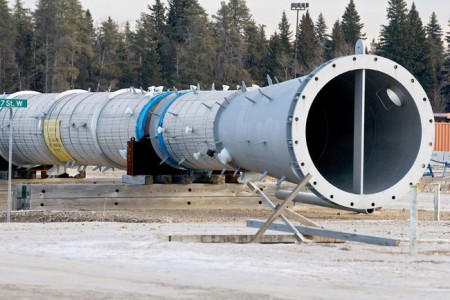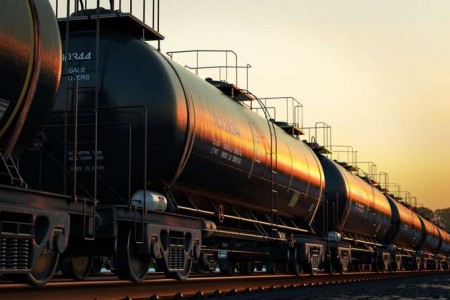May 3, 2016 – If humanity is to successfully transition to a zero carbon future and meet the COP21 target of atmospheric warming limited to less than 2.0 Celsius (no more than 1.5 if possible) then how can an investment in new oil pipelines make any sense? Back in February 2016 Mark Cameron, Executive Director of Canadians for Clean Prosperity, published an article in Macleans Magazine in which he argues that pipelines and climate targets are not mutually incompatible.
An organization arisen from Alberta’s Conservative Party, Canadians for Clean Prosperity seeks to build political consensus for sustainability that both meets environmental concerns and market demands. It is no surprise, therefore, that it endorses a policy to continue to exploit oil sands resources in Alberta and Saskatchewan and the building of pipelines including Keystone XL, Northern Gateway, Energy East and Kinder Morgan.
Why? The arguments, states Cameron, are as follows:
- pipelines would contribute very little to increased greenhouse gas emissions during the build (a small increase to Canada’s net emissions).
- the oil from Alberta and Saskatchewan would get to market by other means with rail the most likely method and rail would produce more greenhouse gas emissions and would increase the risk of spills from derailments.
- in a global context the increased crude shipments from these Canadian sources would translate to a 0.1% increase in human generated greenhouse gases.
Cameron argues that a carbon tax charged on all emissions at the point of consumption would offset the impacts of pipeline projects. He further claims that through this type of program oil sands production could become as clean as conventional petroleum.
But does that address the commitment to a low carbon future and zero emissions?
In an article appearing recently in the National Observer,written by Elizabeth McSheffrey, she states that the Prime Minister of Canada, Justin Trudeau is like-minded in supporting pipelines, in his words, “to generate wealth from our abundant natural resources to fund this transition to a low-carbon economy.” The motivation from Trudeau’s perspective is to continue building a national economy without foresaking the government’s commitment to meet and exceed 2030 carbon emission reduction targets.
But how realistic is that?
Environmentalists and climate change activists argue that it is imperative all nations speed up their transition to zero carbon emissions to mitigate the worst impacts of climate change. The truth is that time has already past. The carbon dioxide emissions entering our atmosphere today combined with the cumulative buildup over the last century have yet to be totally felt. That’s coming down the pipe over the next few decades. This delayed response will come with some surprises and certainly won’t be pretty.
So why contribute even more to greenhouse gases over the next few decades knowing that their impact will be felt through the end of the century and beyond? And is zero emissions by 2030 “magical thinking?”
Blair King in a recent Huffington Post blog thinks so. He argues that Canada’s government and people need to make realistic choices and among these is the building of pipelines, because it means Canadian oil generating Canadian jobs and Canadian tax revenue. And that revenue can underwrite the cost of implementing energy conservation and climate adaptation and mitigation policies and projects.
King believes building the Energy East pipeline from Alberta to New Brunswick meets the criteria of sustainable policy decision making. The oil it delivers would supply Canadian refineries and meet Eastern Canada’s domestic demand. Canada would no longer import oil. And surplus product would be available for export to the United States Northeast, the likely customer.
He concludes his blog stating “I want the funds generated by Canadian oil to help fund our Canadian transition away from our dependence on fossil fuels. The first step in that process is getting that oil to market in the safest, least environmentally harmful manner and that means via pipeline.”
Do you my readers agree?
Do you believe that through a carbon tax or cap and trade policy we can drive the country towards a zero emission future to meet COP21 atmospheric warming target of less than 2.0 Celsius?
Can we justify pipelines and additional oil sands development over multiple decades while meeting the global objectives of containing atmospheric warming?
To help put all of this in context it is important to understand exactly what we are trying to achieve in keeping temperatures below that threshold. Climatologists and scientists contributing to IPCC reports categorically state that meeting the goal requires emission reductions of between 40-70% below 2010 levels by mid-century.
In the energy sector reductions needed would be 90% below 2010 levels by 2040 and 100% by 2070. For this to happen we would need to improve energy efficiency in all industry and residential infrastructure dramatically.
Significant investments in carbon capture and reuse or sequestration would capture emissions at the source.
We would decarbonize industry, buildings and transportation.
We would create negative emissions technology capable to remove carbon dioxide from the atmosphere and not just at points of emission.
We would re-purpose land to increase natural carbon sinks including reforesting large areas of the planet.
The macroeconomic costs although considerable would only marginally impact economic growth according to IPCC which forecasts reductions of 0.1% between the present and the turn of the 22nd century.
Is there a place for fossil fuels in what has been described in this last paragraph? Yes but with a proviso that use of carbon emitting energy sources be offset by carbon capture technology.

















